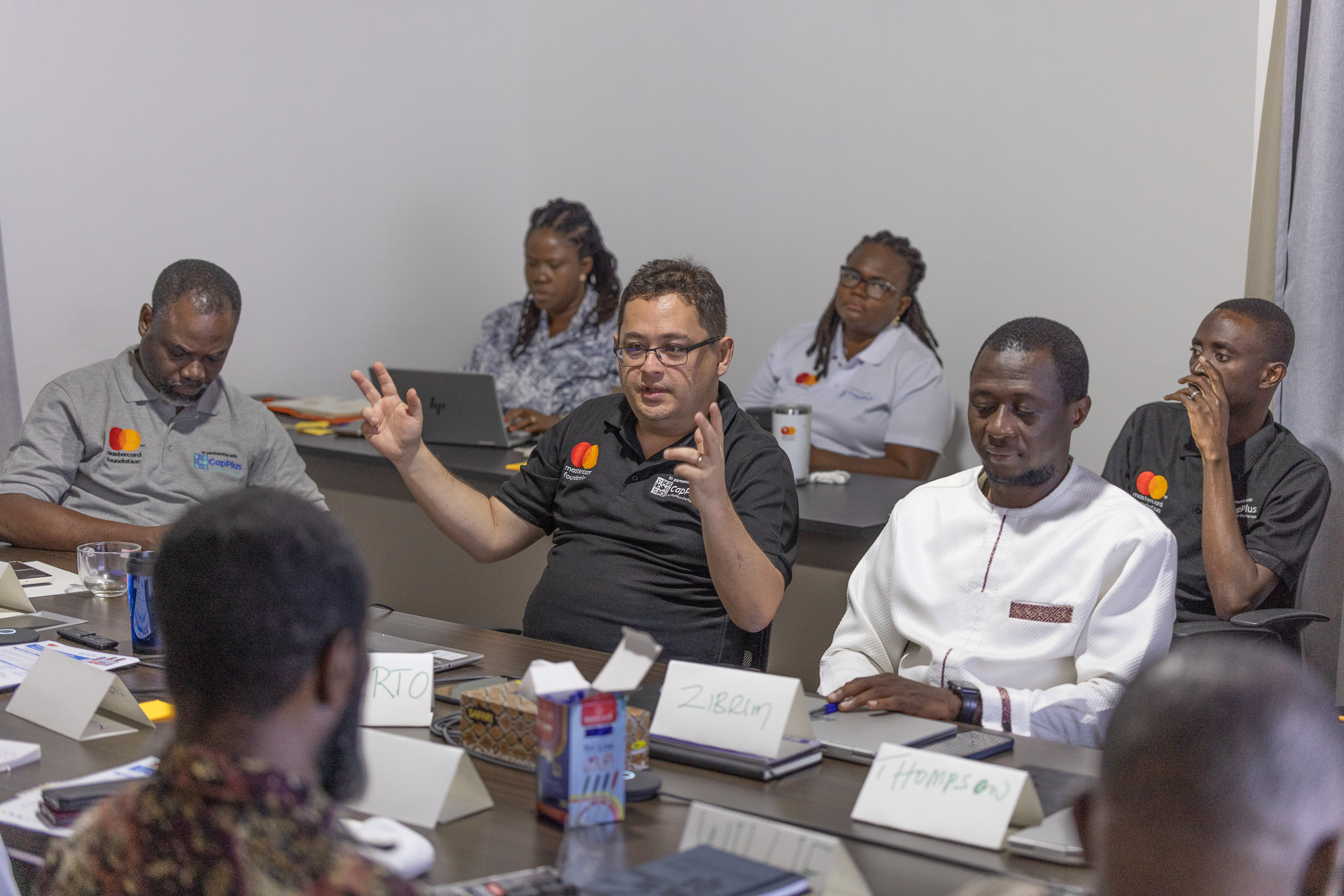
On July 24th and 28th, the FIRST+II program launched its Long-Term Transformation initiative with Manya Krobo and Ahantaman Rural Banks, marking the start of a bold shift from transactional support to deep institutional change. This effort reflects our commitment to Thinking Scale, positioning rural banks to reimagine MSME lending and expand access to finance for youth and women-led businesses. With strong liquidity but low loan-to-deposit ratios, these banks are now being equipped to unlock lending for underserved segments, laying the groundwork to help deliver on our ambition of creating 307,000 dignified and fulfilling jobs for young women across Ghana.
Despite their proximity to Ghana’s informal and rural economies, many rural banks operate with a loan-to-deposit ratio of just 30%, far below the 70% average recorded by agile non-bank financial institutions. This signals a structural underutilization of local capital: constrained by legacy systems, risk-averse credit cultures, and an overreliance on collateral-based lending. These institutions are struggling to meaningfully serve the youth-led MSME segment, particularly those in agriculture and adjacent sectors. Lending to agriculture remains below 10%, and rural banks are estimated to meet less than 30% of MSME loan demand within their catchment areas, highlighting a persistent gap between available capital and the needs of the communities they were established to serve.
The Long-Term Transformation initiative seeks to fundamentally change this reality. It provides a structured roadmap for partner financial institutions to increase their loan-to-deposit ratios for MSME lending by at least 50% annually. What makes this initiative different is its commitment to long-term systems change. Instead of offering short bursts of technical assistance, the program embeds specialists within institutions, building capacity that lasts beyond the duration of donor support. Credit processes are being redesigned to eliminate hidden biases against young borrowers. Products are being adapted to reflect the realities of MSME clients who lack traditional collateral but have viable businesses. Operational systems are being digitized to reduce loan turnaround times and enhance client experience. Over time, these changes are expected to unlock financing for thousands of underserved entrepreneurs and catalyze local job creation from within
To kickstart this transformation journey, we convened a foundational workshop with the long-term transformation specialists and technical partners assigned to each FI. This session created a critical moment for alignment, clarifying the impact we aim to achieve, unpacking the strategic shifts required at the institutional level, and co-designing the roadmap for change. It also introduced the tools, frameworks, and support mechanisms that will guide each FI through the months ahead, ensuring that their transformation efforts are firmly anchored in the program’s broader objective: to unlock inclusive finance and expand dignified work opportunities for youth, especially young women.
“We’re fully on board with the long-term transformation. We’ve already identified two pilot branches in Greater Accra - Ashaiman being a strong candidate because of its vibrant MSME scene. Manya Krobo Rural Bank was founded by women, and our first board chairperson was a woman. Supporting young women through FIRST+II feels like continuing our founding mission. The direction of the FIRST+II program resonates deeply with us, and we’re excited to be the first Bank on this LTT journey. We’re excited to see this program take off!” says the CEO of Manya Krobo RB, Mr. Godfred Asante Hanson.
This is not just an intervention for two banks, it is a test case for what transformation can look like across the rural banking sector. Manya Krobo and Ahantaman are positioned to become role models, demonstrating that inclusive, youth-focused finance is not only possible but scalable. Their experiences will serve as proof points for what is achievable when institutions commit to long-term change. As five additional rural banks prepare to join the LTT initiative, we are building a cohort of forward-looking institutions that can catalyze systemic change—showing the wider industry how rural banks can become dynamic engines of job creation, responsive to the needs of young people, especially women, and capable of sustaining impact well beyond the life of the program.
“This initiative represents a shift from business-as-usual to business-for-impact,” said Roberto Randrianarison, Access to Finance Lead on FIRST+II Program. “We are enabling our partners to break long-standing barriers to inclusive finance and lead transformative change in their communities.”
